If the first special to celebrate sixty years of Doctor Who was a stripped-back affair, the second takes it to the next level. The Star Beast was content to just be a solid episode of the show, shunning any blockbuster tendencies, and Wild Blue Yonder seems to joyously mock expectations that this anniversary extravaganza would match the scale previously seen for the franchise’s fiftieth birthday. It’s an intentional concentration of Doctor Who; an examination of why the show has lasted so long and remained so popular, shedding anything extraneous. The essence of the show, distilled.
Away from the special effects and the aliens, what keeps us watching is the Doctor, his companion, and a mystery for them to solve. If the writing is good enough, that’s all the show needs and that’s all this episode gave us. The Doctor and Donna trapped on a big empty spaceship with no other actors present for the bulk of the episode. Wild Blue Yonder rested on Tennant and Tate’s performances, both as their usual characters and their creepy doppelgängers, and both were exceptional. It was funny, creepy, silly, and had clear echoes of writer Russell T Davies’ excellent previous episode Midnight. But whereas Midnight left Donna to one side, here she’s with the Doctor throughout. Davies recognises the main draw of these specials is the return of Tennant and Tate and so hinges an entire episode on just their interactions, making the most of their brief return.
The previous era of the show, shepherded by showrunner Chris Chibnall, was defined by its excessive busyness, throwing hundreds of plots into a blender and ending up with Flux. I’m not sure if Wild Blue Yonder was a deliberate response to such storytelling but whereas Chibnall’s Doctor Who was diluted, Davies’ is distilled. The episode does reference back to Flux, with the Doctor answering Donna’s question of what happened, very knowingly, with “a lot.”
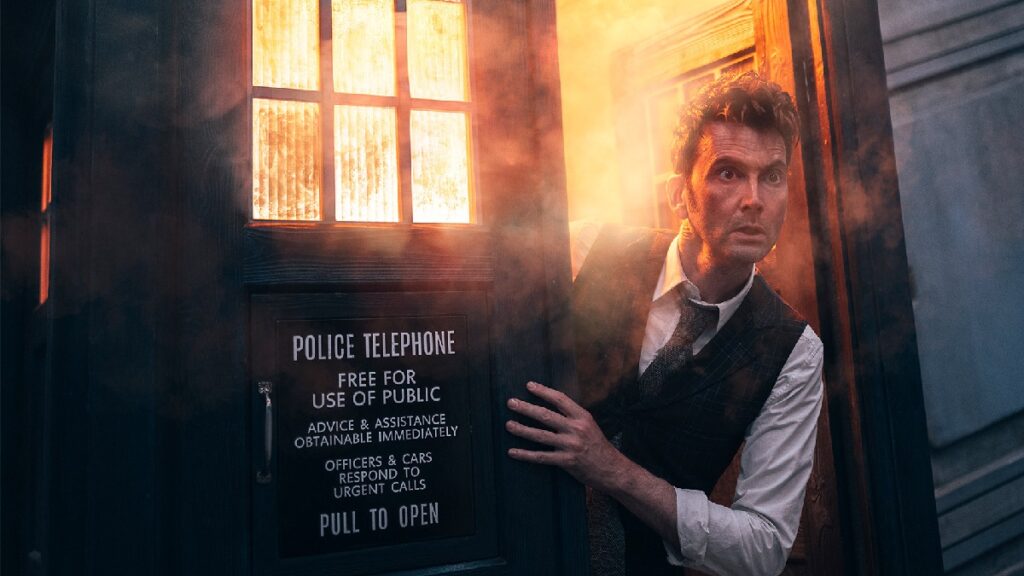
I had forgotten the particulars of what actually happened at the end of Flux, and the fact that half the universe was wiped out is insane and pretty stupid. But I admire that Davies is committed to continuity and may scrape some good character drama from it. It’s good to see that the events weigh heavily on the Doctor and, whether it is ultimately worth it or not, I at least appreciate the attempt in making it work.
The simplicity and contained nature of the show was so effective that I probably would have cut the opening non-sequitur with Isaac Newton. Having another character appear just for a joke undercut the power of having the rest of the episode rest purely on Tennant and Tate’s shoulders. The colour-blind casting of Newton is sure to ruffle some feathers and I’m not sure such casting works in a show that previously hasn’t been colour-blind in this way. Usually, I don’t have a problem with it when race is irrelevant to the character’s purpose in the show, but often race is important in these time travel stories.
One of the best episodes of Whittaker’s run was the Rosa Parks episode, which was obviously all about race and racism, and then having a non-white actor as Newton as a way to ignore race in a time period where it was not ignored feels like it is at odds with what came before. It’s hard to reconcile race being of huge importance in one episode and then irrelevant in other instalments of the same show. If last week’s episode was defined by the show managing to have its cake and eat it too, I don’t think it managed the same in this instance this week.
I really enjoyed the episode once it got going but it did take its time, the beginning was perhaps a little too slow. The CGI ship interior felt very flat and charmless in its visual effects but I really liked the effects on the evil doppelgängers. The long arms, four-legged running, and sudden growing in size was very fun and charming in its simplicity and silliness in a way that the look of the ship wasn’t. Murray Gold’s music was great during the final countdown and I’m very happy he has returned to the show. He’s a vital component in making the series feel closer to what it once did.
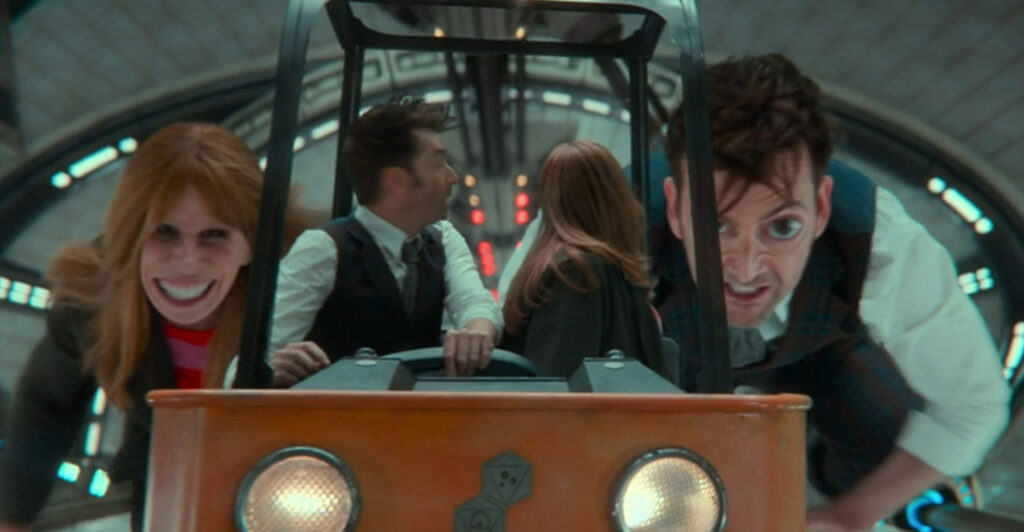
Like all good doppelgänger stories, the theme of identity is explored as much internally as it is externally. Donna had to figure out who she is now her memories have returned and the metacrisis has been vanquished, while the Doctor had to metaphorically confront himself as well as literally, with his past actions haunting him. It’s the relationship between both characters, how well they know each other, which helps save them. Until its not. I was a little disappointed by the final twist. I like “It just is” as the answer to why Mrs Bean is funny and a way to recognise the real Donna. It’s a moment of character and friends knowing each other which saves her, but then it’s revealed that the Doctor chose incorrectly and helped the imposter board the TARDIS. Instead, he works it out by using an x-ray, which has no inherent character beat or learning moment at all.
With the baddies defeated and the TARDIS fixed, the Doctor and Donna return to London. I’m curious to see whether London remains the central Earth hub of the show or whether Davies will return the action to Cardiff or somewhere else. The episode ends with the surprise appearance of Wilf, played by Bernard Cribbins. The news that Cribbins shot a scene for the show before his death last year passed me by and it was great to see him again. Apparently he won’t feature next week, only being able to film this one scene, but it was a nice final appearance by the beloved character and actor.
Because of how standalone and separated this adventure was, there’s an awful lot to cram into next week’s episode, the final part in the sixtieth anniversary trilogy: A plot with the Toymaker; an answer to the mystery of why the fourteenth Doctor is a reincarnation of the tenth; another goodbye with Donna; a regeneration; and the introduction of Ncuti Gatwa’s Doctor. That’s a lot of pressure on The Giggle but it’s worth it for Wild Blue Yonder to exist in the form it does. A middle chapter that could slow down and celebrate the show not with bombast and scale but the simple distillation of the key, core elements that have been at the heart of Doctor Who for sixty years.




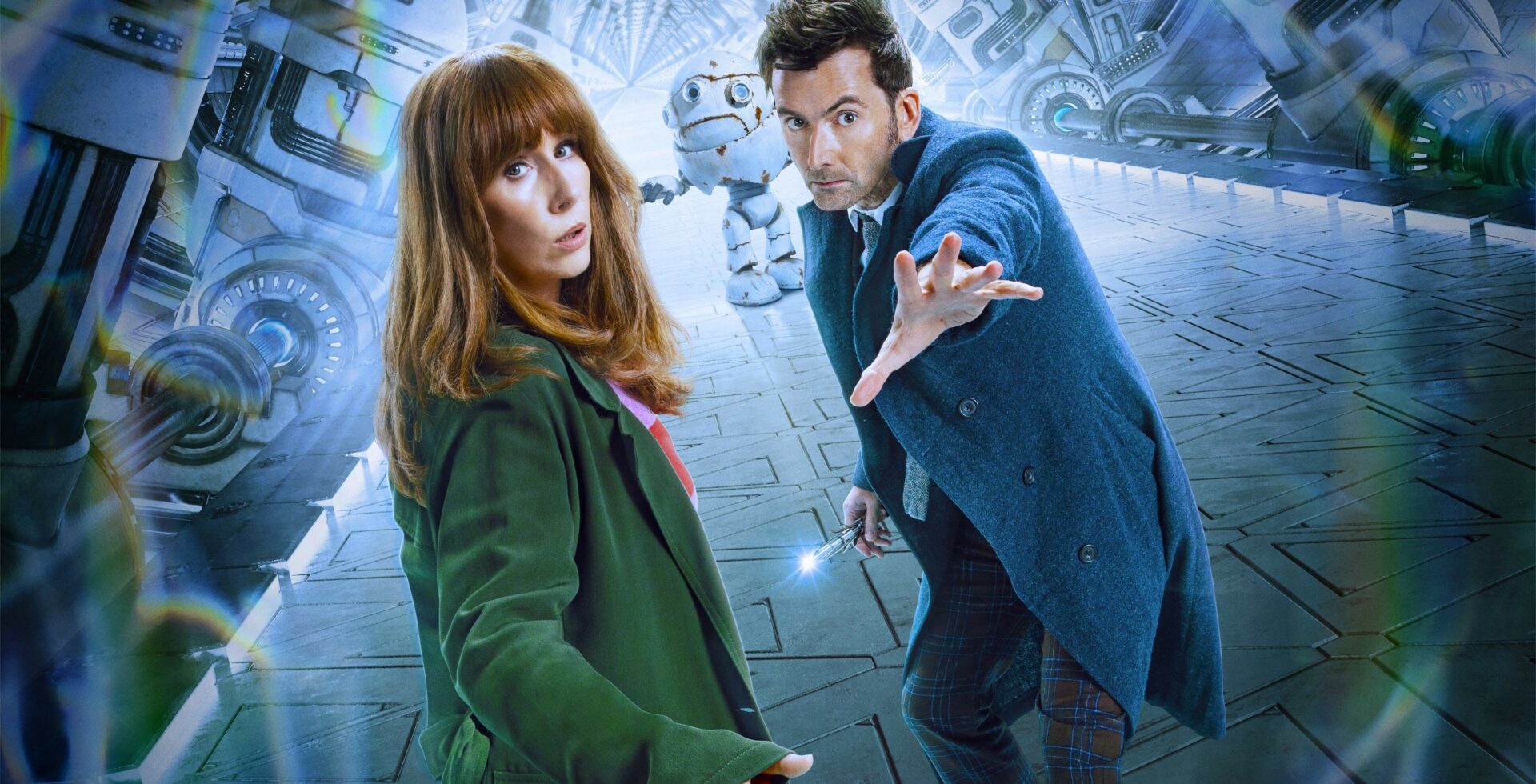
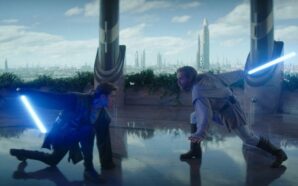

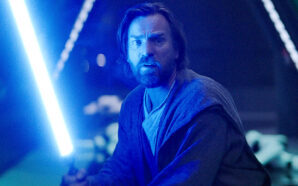
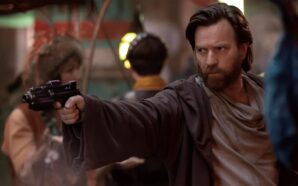
[…] Aryan German persona, commenting that he was born in Britain. I think this speaks to my point in my last review on the colour-blind casting of Isaac Newton. You have to decide a direction, where either race […]